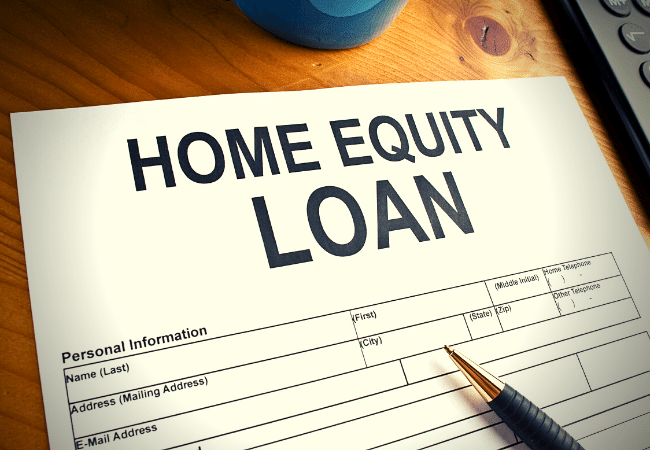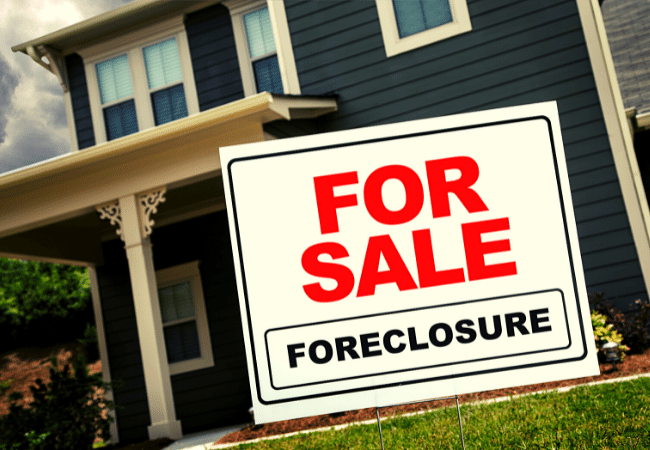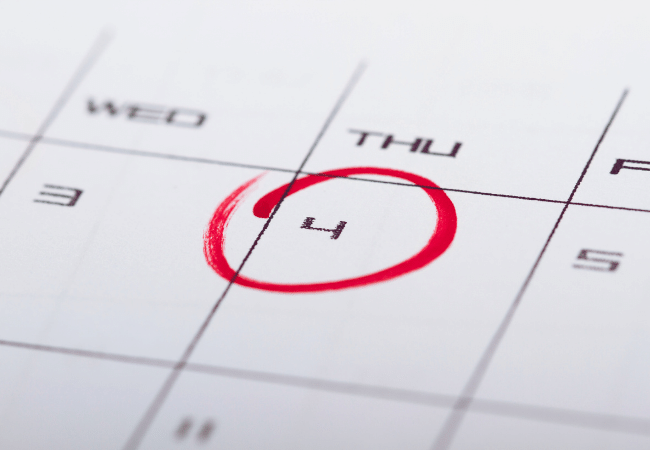Before you start the steps to listing your home for sale, talk to a professional real estate agent so you can decide on the best way to purchase a house and sell your home.
No matter what your circumstances, selling or buying a property can be very stressful. It can become even more stressful if you have to do both. It is important to get the best deal for your home and make sure you have enough money for the down payment on your new property. You must also ensure that the timelines are compatible so that you don’t go without a roof over your head.
Does that sound intimidating? That’s ok! To help you buy and sell a house, we consulted experienced real estate agents. Instead of worrying about two sales, you can make your move easy and be ready to go in no time.
It is important to have someone you trust and who understands your options and can help you make the right decisions.
First, do your research
A real estate agent will give you an idea of the price your house might sell for and the likelihood that it will sell quickly before you make any final decisions. A real estate agent will also help you determine your timeline and create a step-by-step process that works best for you.
These are some of the factors they will consider while you go through the first few steps.
- Your financial situation: This is the most difficult thing you will likely face. You have to come up with a down payment for your new house while your equity and investment remain tied up in your existing home. The agent will ask you for your budget if you want to purchase a home right away. If necessary, they will also help you with your sale by introducing you to other options such as a home equity loan or bridge loan.
- The condition of your house: This will affect how quickly your home sells in today’s market. It will also determine if there are any problems with your listing.
- Timeline: Are you flexible with closing and moving dates? Are you able to close both sales in a short time? These are questions that your agent will be asking. There will likely be an overlap in sales. Therefore, it will help to have a clear timeline.
- The equity in your house: This will tie back to your financial situation but it will also give your agent additional information that can help you decide whether you should sell or buy first. Your equity may be used to help you with the down payment if your home is sold first.
Next: Understanding the timeline
Real estate transactions can be complex enough on their own. If you are looking to sell and buy simultaneously, there are additional steps that could disrupt or delay the sale.
Let’s look at the typical timeline for selling and buying a home. Assuming there are no issues or hiccups.
- Preparing your home for sale (4-6 weeks): Your agent can help you price the listing and stage your home if necessary. Take a look at the condition of your home to determine if any issues are present.
- Search for a home (8 weeks): After you have searched the market and found the right home, it is time to make the best offer. A sales contingent may be suggested by your agent. This means that your purchase will depend on the sale of your existing home. Your agent might recommend a longer closing period if your offer is accepted. This will allow you to sell your house and make use of your equity for your down payment, if necessary.
- Place your house on the market
-
- Accepting an offer (2-4 weeks): According to statistics from the National Association of Realtors, homes stayed on the market for an average of 18 days in February 2022. This is down from 20 days last year. Days on Market is a measurement that measures the time between listing a house and making contact with a buyer.
- You should get to the closing table within 4 to 6 weeks. This is where you most likely will find some overlap between buying and selling your home. You will likely do the same thing for your new property as you did for the sale of your property.
- Closing on your new house in 4-8 weeks: This will depend on the contingencies that you have and any delays in financing. You want to close on your new house at the same time as your existing home so that your moving van can move from your old place to your new one.
Buying before selling
You can buy a new house and then sell the current one.
The best thing about this arrangement is the relief of some moving stress. You don’t have to look for temporary housing or pay for a rental. You can simply stay at your home and make your own decisions.
At that time, you can move into your new home and it allows your agent the opportunity to market the existing home that you were previously living in more effectively.
There is a danger that you could be responsible for more than one mortgage and may end up being financially stretched or even bankrupt if things don’t go as planned. You can’t usually use your equity to finance the down payment of the new property because you are waiting to sell your home.
But don’t worry. This route can be done in several reasonable ways. Here is a brief overview.
Option 1: Purchase a new home and cross your fingers
Today’s hot-selling market is where homes sell quickly. It is possible to buy a house you don’t need and wait for the market to sell it.
This option can be daunting, especially if your home isn’t in the best condition. Buying a second home can be more difficult than buying your first. You will need excellent credit and a good income. This might be an option for you if you are willing to take calculated risks.
Option 2: Purchase with a sales contingent
A sales contingency is a condition that your offer includes a clause that states that your home must sell within a specified time frame. You can also cancel the contract at any time without penalty.
A seller may consider making a contingent offer in certain situations. Your agent can tell the seller’s agent how likely it is that your home will sell quickly.
Sellers may accept the offer if the house is in a low-demand price range or area.
Option 3: Buy with an inter-bank loan
Many sellers use the proceeds from the sale of their house to pay for their new home. This can lead to them finding themselves in an awkward situation where the closing date doesn’t coincide. The money they require from the equity in their home is not yet available. This is where a bridge loan can help.
Bridge loans are high-interest loans that are often secured by your existing home. They can be used to finance the down payment of your new home or cover costs if you have two mortgages. The loan is repaid when your home is sold, typically within six months.
While the goal of a bridge loan is not to buy two homes, it allows you to first purchase a home and then sell or market your existing home.
Most people who take out bridge loans put their homes on the market when they find a new place to live. She explains that most people try to arrange closing dates as soon as possible to minimize the time the bridge loan remains open.

Option 4: To buy, you can use a home equity loan.
Home equity loans are loans where the borrower uses their home’s equity as collateral. The borrower’s home is put under lien and the homeowner’s equity in the house is reduced.
Buyers don’t often take this route, as it could affect their ability to get a mortgage for the new home.
The home equity line-of-credit (HELOC), however, is slightly different. Although a HELOC uses your home as security it doesn’t give you your money immediately. You can instead draw on your credit line as you need it, similar to a credit card until you reach the limit. HELOCs typically have lower interest rates but they can be variable and may increase or decrease depending on certain factors.
A home equity loan or credit line might be an option if you have equity in your house and are considering selling.
Option 5: Borrow money from your investment funds
Your 401(k and other retirement funds can be used to finance your purchase. You can either borrow money from your 401(k) or make a withdrawal. However, this is a more risky option.
You will be charged a substantial fee if you withdraw from your retirement account (either a 401(k), or an IRA) before you reach 59 1/2. The IRS will typically charge you a 10% penalty as well as income taxes for any withdrawals.
Individual retirement accounts (IRAs) are exempt from this exception if you’re a first-time homeowner. This means you haven’t owned a property for the past two years. You can withdraw as much as $10,000 without penalty if you are eligible. This applies only to IRA accounts. If you are a first-time buyer, a withdrawal from a 401(k), however, will still be subject to a penalty.
You don’t need to pay taxes or pay a penalty for a 401(k)loan. However, you must repay the loan with interest within a set period (typically five to ten years). You’ll also be penalized if you default.
While borrowing from retirement accounts might be an option, it comes with significant risks. You could face a penalty if the money is withdrawn permanently or the loan is not repaid. Additionally, you could lose significant future investment returns.
If you have $25,000 in your current 401(k), you can expect it to grow to $175,000 over 40 years with a 5% annual return and no additional contributions. If you only withdraw $5,000 to make a down payment, the number drops to $140,000. If you’re considering this option, it’s worth thinking about your long-term goals.
Option 6: Look at your options
Are you looking to purchase a new home? You might be able to rent your current home if you live in an area with high rents and are financially able to make it work.
There are many options for renting your house. You can rent it as a vacation house, go into a lease-to-own situation, or just rent it the old-fashioned way.
Rental income from your property isn’t the same thing for the bank as if it were sold, especially when the lender considers the ratio of your debt to income.
You cannot just say, “Hey, my mortgage payment costs $3,000 per month, and I found someone who will rent my house for $3,000 per month, so it should be okay.” It’s not a one-for-one, but it might help.
Selling before you buy
You can sell your house before purchasing a new home if you prefer to be safe. This option eliminates the need to finance two homes temporarily or buy with a contingent. You also have financial flexibility because you can probably use your equity to finance your purchase.
You have more purchasing power if you don’t have a mortgage. It helps you negotiate on your new home and allows you to move faster.
You may, however, be stuck without a place to live if your house is sold first. In such cases, you might consider moving into a temporary rental house or sharing a room with a relative in the mean time.
If you want to store your all your belongings, while living on a friend’s couch, you will need a large storage unit that can cost around $300 per month. The average nightly cost of an Airbnb in North America is $161.
There are many markets that are highly competitive and it is scary. Buyers are worried about selling their home and not being able to find another one, which could leave them homeless.
But again, don’t fret. There are many options available that will make selling before you buy an appealing route.
Option 7: Sell your house and cross your fingers
This could be a good choice if you live in an area that is a hot buyers’ market. Buyers have more power. This situation will help you find the perfect place and you won’t need to wait long to purchase a new home.
As we have already mentioned, selling your house before purchasing a new home may not an easy task in this market. 2022 is definitely a seller’s market. This means that you may have limited inventory and high-priced homes. It is possible to not find a house you want after your house sells.
Option 8: Extend the closing process
A house can be closed in about one month. But you don’t need to. You, the seller, can request a longer closing period from the buyer to give you more time to search for a new home.
Some buyers might not agree to a longer closing period. However, it may be beneficial for others – especially if they have their own property to sell.
These are just a few of the other benefits that extended closings can bring:
- You have more time to fix any problems from your appraisal
- You will have more time to complete any repairs or concessions that were made during the home inspection
- You will have more time and therefore less stress packing and organizing your move
Option 9: Request a rent-back agreement
You might consider asking for a rent-back clause in your contract if you decide to sell your home but are unable to find a buyer right away. This will allow you to rent the home from the new owner for some time, let’s say for three months. It will give you more time to look for a new house and keep you covered financially.
Option 10: Buying a Foreclosure
 It can be difficult to understand foreclosure properties. It can be more difficult to purchase an REO than a traditional home that is occupied by a seller. Not only are there very few disclosures for foreclosures, but most REOs require numerous addendums or amendments to the purchase contract.
It can be difficult to understand foreclosure properties. It can be more difficult to purchase an REO than a traditional home that is occupied by a seller. Not only are there very few disclosures for foreclosures, but most REOs require numerous addendums or amendments to the purchase contract.
It is highly recommended to use a top agent who is familiar with the process because of the extra steps and paperwork required when purchasing a foreclosure.
Bottom line
It can be difficult to simultaneously sell your home and search for a new location. A top real estate agent will help you make the transition easier and keep everyone in touch. Lastly, ensure you are always on top of your credit and finances, both during and after the sale. It is important to be able and quick to find your next home.



